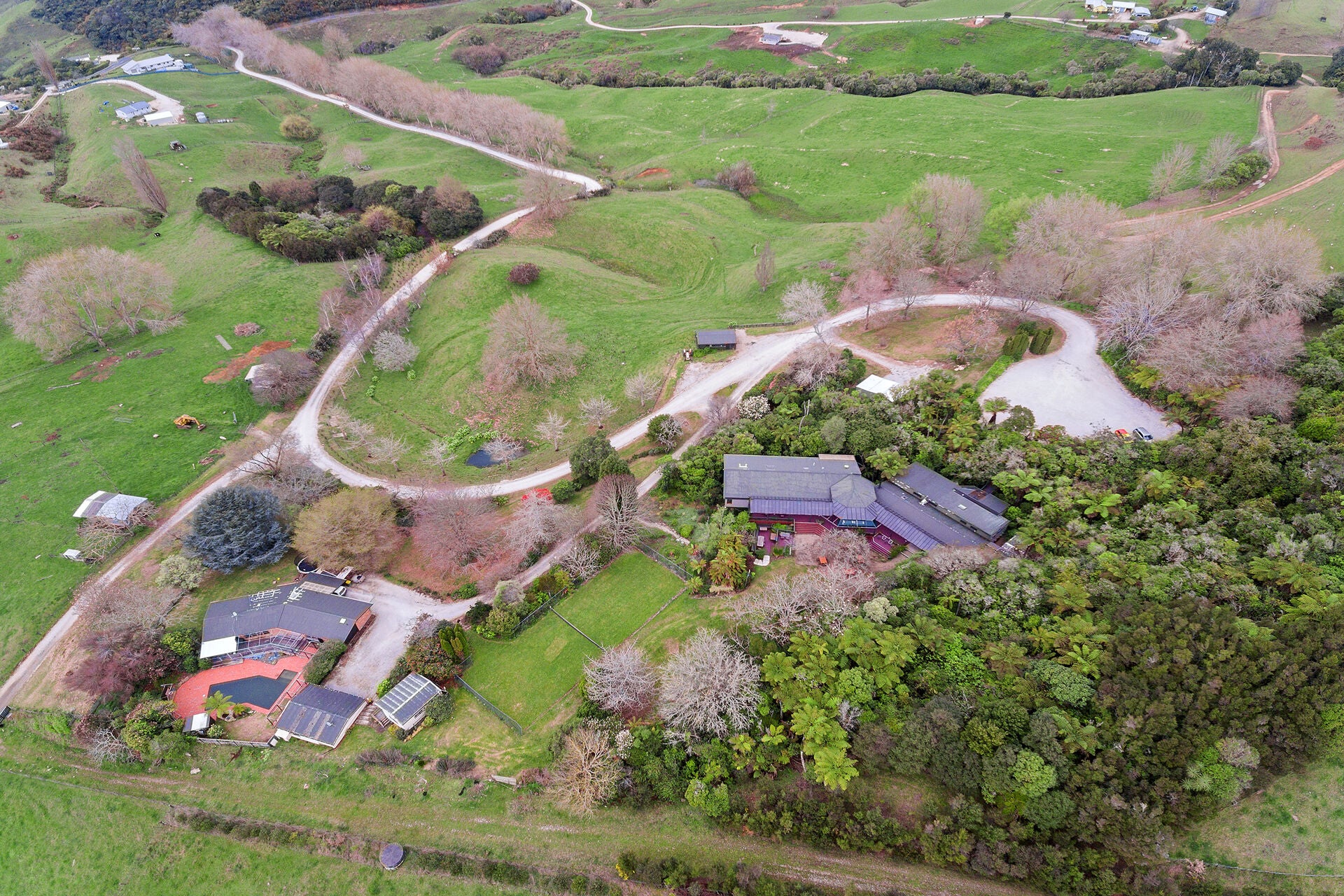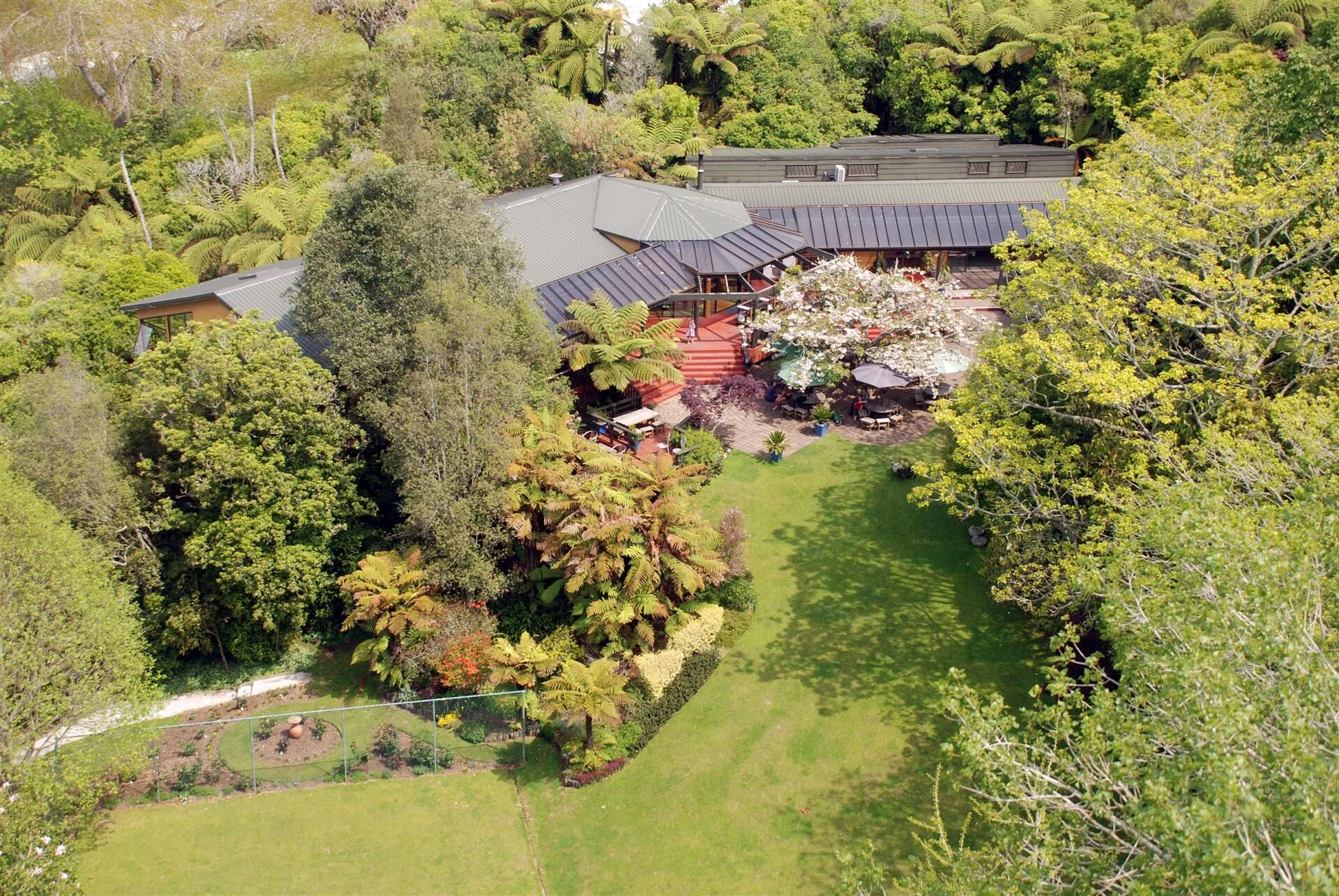Waitomo Caves opportunity with future options

The land and buildings housing a ‘classic Kiwi kai’ food and beverage establishment which relied heavily on high-volume international tourism numbers – now no longer travelling to New Zealand as a result of Covid-19 border restrictions – have been placed on the market for sale.
Roselands Restaurant located near the Waitomo Caves in the South Waikato had been operating successfully as a large format eatery catering to the high-volume bus-transported in-bound tourism market, and as a functions venue to the domestic guest sector. It had a capacity to seat up to 300 guests within the 220-square metre premises.
Serving such classic New Zealand dishes as roast lamb and roast pork, barbequed steaks and sausages, coleslaw and potato salads, strawberries and cream, and kiwifruit pavlova, the venue was previously busy seven days a week.
However, the Roselands Restaurant business ceased trading during New Zealand’s Covid-19 level four and level three lockdown period, and as a result is now a dormant asset. The property is some three kilometres from the centre of Waitomo’s commercial hub.
Assets and chattels included in the Roselands Restaurant sale include all of the venue’s tables and chairs, cutlery, crockery and glassware, a fully fitted out bar with back-bar refrigeration units, and a full commercial kitchen with multiple hobs, deep fryers, stainless steel benching, and walk-in chiller units.
Now the land, buildings and business assets formerly used by Roselands Restaurant at 579 Fullerton Rd in Waitomo - including 6.1-hectares of land and a separate owner’s residence - are being marketed for sale by tender through Bayleys Hamilton, with tenders closing on November 5. Salesperson Josh Smith said the Roselands Restaurant opportunity was being offered as a non-trading entity.
“The impacts of the international travel restrictions now in place around New Zealand’s borders and the subsequent evaporation of international tourists had an immediate and catastrophic impact on what was Roselands’ business model - which had a 90 percent reliance on foreign holidaymakers coming into the Waitomo region by the bus load,” Smith said
“When 90 percent of the customer market disappeared literally overnight back in March and April, there was no chance Roselands could survive - even with the eventual lift in domestic tourism numbers.
“As a vacant premises with no goodwill valuation attached, any new owner of the Roselands Restaurant chattels, fittings and fixtures, can look at a range of options for building the business up from the ground again,” Smith said.
“There are multiple opportunities for the property – either trading as a hands-on owner-operated entity, or leased to a hospitality operator. With a vast amount of undeveloped paddock space available within the property, there is also the potential – subject to council consent – to add accommodation at either a backpacker level, or in motel style units.
“While Roselands Restaurant’s previous owners had chosen not to ‘pivot’ into a new business model in this new Covid-19 trading environment, the opportunity is now in place for a more motivated new operator to look at bringing the business back to life under a new framework.
“The Roseland Restaurant business, while busier over the summer period, was certainly not wholly seasonally-reliant as the nature of the nearby Waitomo Caves attractions, being underground, meant visitor numbers to those location were busy year-round. As the biggest restaurant and function venue of its type in the South Waikato, Roselands Restaurant venue simply piggybacked off that.”
Smith said the long-term forecast for Waitomo’s tourism sector was positive – as supported by two local organisations receiving funding under the Ministry of Business Innovation and Employment’s Strategic Tourism Assets Protection Programme (STAPP). Some 305 companies and tourism organisations across New Zealand applied to the fund.
The STAPP business support mechanism was set up during level four and level three lockdowns in April and May, and allocated grants of $2million to glow worm cave visit company Discover Waitomo, and $500,000 to cave abseiling adventure firm Waitomo Adventures.
“The apportioning of public funding into these tourism organisations, which both work in the same locality as Roselands, reflects the Government’s long-term regional faith in the Waitomo tourism sector,” he said.
“The opportunity is there at Roselands for a new owner/operator to create a fresh format for these Covid-19 effected times. While the ‘Kiwi kai’ format worked well for international tourists – exposing them to local fare – the same concept is probably not as relevant for New Zealanders who eat that style of food every week.
“The new clientele demographic could well be more suited to a gourmet burger and woodfired pizza menu with a selection of New Zealand craft beer for example.”
Smith said there was also the opportunity of reinvigorating what was Roselands’ functions and events business – encompassing weddings, birthdays and anniversaries. The venue’s sealed driveway and car parking spaces are wide enough to sustain both large tourist buses and cars.
“With a population catchment area ranging from Hamilton in the north to Taumaranui in the south, the venue’s ambience and setting offer an attractive alternative to hosting those sort of functions in town halls or the local hotels,” Smith said.
“With a smattering of accommodation providers in the immediate vicinity – ranging from budget holiday park style options up to private B & B style providers, there is the option for guests attending functions to stay in the locality overnight. For those coming from further afield, they would most likely tie in their stay with a visit to the glow worm caves.”
